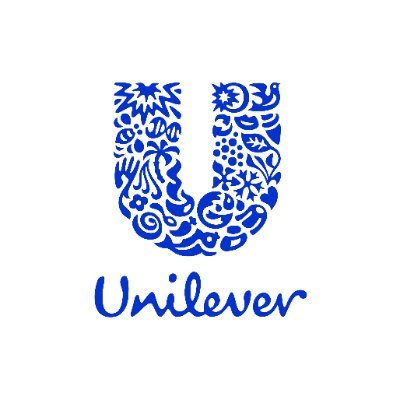Bank of America Double-Upgrades Unilever to Buy, Shares Rise

Unilever (NYSE:UL) shares rose more than 2% intra-day today after Bank of America double-upgraded the stock from Underperform to Buy, citing improved growth prospects and market positioning. The investment bank projects Unilever's organic growth to achieve a compound annual growth rate (CAGR) of 4.6% from 2024 to 2027, driven by a favorable product mix and increased market share.
This growth trajectory is expected to boost Unilever's EPS CAGR to 10% for 2023-2026, compared to just 1.5% between 2020-2023. A key element of this upgrade is the anticipated separation of Unilever's Ice Cream business by 2025, which Bank of America sees as a catalyst for Unilever to focus on higher-growth categories, enhancing both returns and cash flow.
The Ice Cream division is forecasted to trade at around 10 times its estimated 2025 EBITDA, and the separation could also reduce risks if the business underperforms. Meanwhile, Unilever's remaining operations, dubbed "RemainCo," are expected to outperform industry averages with superior margins, higher growth rates, and a 250 basis point advantage in EPS CAGR.
Bank of America also underscores Unilever's focus on its "power brands" and innovation-led strategies as key drivers of future volume growth and improved performance across its portfolio.
| Symbol | Price | %chg |
|---|---|---|
| UNVR.JK | 2580 | 0.78 |
| 090435.KS | 41050 | -1.34 |
| 090430.KS | 120900 | -0.66 |
| HINDUNILVR.NS | 2465.5 | 0.02 |

Bank of America Double-Upgrades Unilever to Buy, Shares Rise
Unilever (NYSE:UL) shares rose more than 2% intra-day today after Bank of America double-upgraded the stock from Underperform to Buy, citing improved growth prospects and market positioning. The investment bank projects Unilever's organic growth to achieve a compound annual growth rate (CAGR) of 4.6% from 2024 to 2027, driven by a favorable product mix and increased market share.
This growth trajectory is expected to boost Unilever's EPS CAGR to 10% for 2023-2026, compared to just 1.5% between 2020-2023. A key element of this upgrade is the anticipated separation of Unilever's Ice Cream business by 2025, which Bank of America sees as a catalyst for Unilever to focus on higher-growth categories, enhancing both returns and cash flow.
The Ice Cream division is forecasted to trade at around 10 times its estimated 2025 EBITDA, and the separation could also reduce risks if the business underperforms. Meanwhile, Unilever's remaining operations, dubbed "RemainCo," are expected to outperform industry averages with superior margins, higher growth rates, and a 250 basis point advantage in EPS CAGR.
Bank of America also underscores Unilever's focus on its "power brands" and innovation-led strategies as key drivers of future volume growth and improved performance across its portfolio.

Unilever PLC: Leading Growth in European Consumer Staples
Unilever PLC: A Beacon of Growth in the European Consumer Staples Sector
Unilever PLC (UL:NYSE) stands out as a beacon of growth and resilience in the European consumer staples sector, as underscored by Barclays' recent analysis. The company, renowned for its diverse portfolio including household names like Cornetto ice cream and Persil laundry detergent, is on a promising trajectory towards revitalizing its market position. Barclays' projection of a 3% organic sales growth (OSG) for Unilever, aligning it with the performance of industry giant Procter & Gamble, underscores the company's robust sales momentum. This optimism is further bolstered by Unilever's ambitious €1.5 billion share buyback program, aimed at enhancing shareholder value post the first quarter, showcasing the company's commitment to financial stewardship and investor confidence.
Despite facing headwinds in key markets such as Indonesia and India, and challenges within the deodorant segment, Unilever's strategic focus on high-growth areas like Latin America and the Prestige & Health/Wellness sectors is a testament to its agile market positioning. This strategic pivot is not just about navigating immediate challenges but is a forward-looking approach to tap into emerging consumer trends and preferences, thereby fueling long-term growth. The anticipated 3.8% OSG for the full year of 2024, coupled with a trading operating profit margin increase to 17.0%, reflects a clear path to improved profitability and operational efficiency. Such projections are indicative of Unilever's robust business model and its ability to adapt and thrive amidst market volatilities.
The recent quarterly financial report of Unilever further cements its status as a powerhouse in the consumer staples sector. With a staggering revenue growth of nearly 99.12% and a gross profit growth of 550.54%, Unilever demonstrates not only its market dominance but also its operational excellence in translating sales into profitability. The parallel growth in net income and revenue, both at approximately 99.12%, highlights the company's effective cost management strategies, ensuring that increased sales directly contribute to the bottom line. Moreover, the robust operating income growth of 96.21% underscores Unilever's strong operational performance, reinforcing the company's ability to generate substantial profits from its core business activities.
Despite a negligible decrease in asset growth, Unilever's financial health remains strong, as evidenced by the impressive growth in free cash flow and operating cash flow, both at approximately 96%. This remarkable cash generation capability is crucial for Unilever's strategic investments, debt repayment, and sustaining its share buyback program, thereby supporting its growth trajectory and shareholder value enhancement. The minimal growth in book value per share and debt, at about 1.07% each, indicates a stable financial structure, balancing equity value enhancement with prudent debt management.
In summary, Unilever's strategic focus on high-growth sectors, coupled with its impressive financial performance, positions the company as a compelling investment opportunity within the European consumer staples sector. The company's ability to navigate market challenges, coupled with its strong growth in profitability and cash generation, underscores its resilience and potential for sustained growth. As Unilever continues to execute its strategic initiatives and capitalize on emerging market opportunities, it remains a key player to watch in the evolving consumer goods landscape.

Unilever's Strategic Restructuring Plan for Enhanced Growth
Unilever's Restructuring Plan: A Strategic Shift for Growth
Shares of Unilever (NYSE:UL) have been struggling to gain momentum in the stock market, with a 13% decline over the past five years and a 3.5% drop in the last 12 months. This underperformance has prompted Unilever's management to take decisive action by announcing a comprehensive restructuring plan. The plan aims to streamline operations and focus on core business areas by dividing the company into four distinct units: beauty and wellbeing, personal care, home care, and nutrition. This strategic shift is designed to enhance operational efficiency and drive growth in these key segments.
A significant aspect of Unilever's restructuring strategy is the decision to spin off its ice cream division, which houses iconic brands such as Ben & Jerry’s and Magnum. This division has been a strong performer within Unilever's portfolio, generating impressive sales of $8.57 billion in 2023 and contributing to 13% of the company's total revenue. The spin-off is part of a broader initiative to streamline Unilever's operations and focus on its core business areas. Despite the division's success, Unilever believes that separating it from the main business will allow both entities to pursue more focused growth strategies.
The restructuring plan also includes a significant cost-saving component, with Unilever aiming to eliminate 7,500 jobs. This move is expected to contribute to annual cost savings of approximately $850 million by the end of 2025. The job cuts and the focus on operational efficiency are critical steps in Unilever's effort to improve its financial performance and shareholder value. By reducing costs and focusing on its most profitable segments, Unilever aims to reverse its recent stock performance trend and position itself for future growth.
However, the announcement of the restructuring plan and the ice cream division spin-off has yet to make a notable impact on Unilever's stock performance in the consumer discretionary sector. This could be due to investor skepticism about the effectiveness of the restructuring plan or concerns about the potential challenges of executing such a significant transformation. Nevertheless, Unilever's management is confident that these strategic moves will enhance the company's competitiveness and drive long-term shareholder value.
As Unilever (NYSE:UL) continues to navigate through its restructuring process, investors and analysts will closely monitor the company's progress and the impact of these changes on its financial performance. The success of the restructuring plan, including the spin-off of the ice cream division and the achievement of the targeted cost savings, will be crucial in determining Unilever's ability to improve its stock performance and regain investor confidence.

Unilever Stock Gains 3% on Ice Cream Unit Spin-off News
Unilever (NYSE:UL) shares rose around 3% intra-day today after the company announced plans to spin off its ice cream business, including famous brands such as Ben & Jerry’s and Magnum, as part of an extensive restructuring plan affecting 7,500 jobs.
The company stated that this restructuring would lead to approximately 1.2% of its turnover in costs over the next three years, an increase from the previously estimated 1%. The spin-off process is beginning immediately, aiming for completion by the end of 2025. Unilever's strategy is to achieve mid-single-digit sales growth and slight margin improvements following the division's separation.
Additionally, the company is embarking on a cost-saving scheme that is expected to save around 800 million euros ($869 million) within three years. CEO Hein Schumacher, since last October, has been focusing on streamlining operations towards 30 key brands, which account for 70% of Unilever's sales.

Unilever Stock Gains 3% on Ice Cream Unit Spin-off News
Unilever (NYSE:UL) shares rose around 3% intra-day today after the company announced plans to spin off its ice cream business, including famous brands such as Ben & Jerry’s and Magnum, as part of an extensive restructuring plan affecting 7,500 jobs.
The company stated that this restructuring would lead to approximately 1.2% of its turnover in costs over the next three years, an increase from the previously estimated 1%. The spin-off process is beginning immediately, aiming for completion by the end of 2025. Unilever's strategy is to achieve mid-single-digit sales growth and slight margin improvements following the division's separation.
Additionally, the company is embarking on a cost-saving scheme that is expected to save around 800 million euros ($869 million) within three years. CEO Hein Schumacher, since last October, has been focusing on streamlining operations towards 30 key brands, which account for 70% of Unilever's sales.







